Wagner: Die Walkure (Thielemann)
Another Opus Arte offering from Bayreuth presents this most German of music dramas, with a German conductor and German director, and with just a couple of exceptions, a wholly German cast and orchestra. There should be nothing particularly special about this of course, as the very best Walküre I saw was with Reginald Goodall conducting Welsh National Opera in the Brangwyn Hall in Swansea, but Katharina Wagner almost certainly had a point to make by selecting this production for broadcast and recording.
Tankred Dorst's 'Ring' was first seen in 2006, and being a hugely respected playwright I suspect (and this is confirmed in his contributions to the documentary) he had strong feelings about telling a story in a relatively simple way and also not to 'interfere' too much with throwing peculiar ideas onto the stage…well, not too many anyway.
There are a few occasions where we seem to have 'the real world' walking in on the mythical action, when families with young children appear, cycle around, and even interact with the characters. Why this is happening is anyone's guess, although I liked to imagine it was a way of reminding us that even though our own lives go on, Gods, whether imaginary or not, always have an effect on us, and we can have just as much influence on their own existence as they do on ours.or something like that anyway. Other than that, the production is refreshingly 'traditional'. There's a 19th century feeling about it all, and yet the mythical world feels just as human as that which infringes upon it.
The opening act shows Hunding's hovel as something akin to a spit-and-sawdust tavern and over to the left is the 'ash tree' (here, what appears to be an old ship's mast) into which Wotan's sword is stuck firmly. Act II takes us to the forests for the hunting of Siegmund. The trees are statues or ghosts of heroes past, and I'm happy to say that Siegmund is most definitely killed by Wotan's spear this time around. Act III transports us to an artistically-hewn quarry from which the Valkyries are busy sweeping up the remains of the fallen, and the final 'magic fire' scene is extremely effective in its use of lighting from all directions.
One of the great things about this particular Walküre was recorded over just the one evening and there's a noticeable continuity we don't often sense despite the hour-long breaks between each act Bayreuth insists upon.
Thielemann begins proceedings with what I consider to be a rather laid back storm…ok, it's actually just too slow, and if there were any other niggles, I would also have preferred more time over Sieglinde's climactic praise for Brünnhilde in Act III, but for the rest of the work his interpretation is very satisfactory indeed, and the playing of the mixed up group that is the Bayreuth Festival Orchestra is absolutely superb.
Johan Botha (Siegmund) and Edith Haller (Sieglinde) are probably the best 'couple' I've heard, although not necessarily seen, in these roles. Botha's size means he can't really get around as much as the character's history dictates he should, but the chemistry between the two is tangible and it's a rare occasion on which you would hear such fantastic singing from both lovers. Indeed, close your eyes, and Botha's voice belongs to a far more heroic figure than we see in front of us and you can well believe Sieglinde would be instantly attracted to him. Haller's voice has a quality that quite often sounds as if it's more suited to Mozart, but this 'cleanliness' doesn't mean the power to come across with relative ease over a Wagnerian-sized orchestra isn't there.
Kwangchul Youn as Hunding is quite effective at showing a decent amount of menace, vocally at least, although there's not much in the way of threat in the acting. This is almost the opposite of Mihoko Fujimura (Fricka), who sounds quite strained, or even breathless in her role at times, but she throws herself into the character of the ill-done-by wife by seemingly scaring the bejesus out of Wotan, and this is very effective in bringing out the 'human' drama the gods find themselves playing out.
Albert Dohmen (Wotan) appears at times to be more of a downtrodden husband than the ruler of the gods, and this, together with his difficulty in controlling his wayward daughter, is one of the most engaging aspects of this production. Vocally, he is very secure and the 'Farewell' is particularly moving, if not quite as tear-jerking as it can often be. Having said this, he's a little static on stage, and this being a trait amongst the male characters in the production, could well be a fault with Dorst's direction.
Linda Watson as Brünnhilde is considerably more active, and is as exciting and accurate as anyone I have heard in this role, certainly in single live performance. She, and the rest of the Valkyries are dolled up in some very fetching red outfits, complete with requisite spears and transparent shields. The action in the most famous musical sequence at the beginning of Act III is almost the opposite you would expect, with the girls picking up the bodies of the dead in an almost nonchalant fashion, but there's certainly a girlish excitement in performing their job, and the vocal power of the eight 'other' Valkyries is incredible.
The DTS sound is stunning, and although there's obviously a huge amount of help from the microphone placement in getting the voices heard, there are moments where you just want the orchestra to let rip, and this is exactly what happens.
Visually, the NTSC video is very clear, with the 'drabness' of the sets a lot more obvious when Brünnhilde and the ladies appear, the only real colours being their costumes and the fiery end (which I'm sure we've all suffered from at times) are brought to the fore with great effect.
We also have a very satisfactory documentary (c.23 mins) on the creation of the production for the stage, which shows exactly how much work is needed to put on such a show, and you really do begin to feel grateful that these performances from the most ivory of ivory towers are available for general consumption - perhaps we don't need to book tickets ten years in advance after all (?).
This is certainly a Walküre worth watching, and even though the rest of the Dorst cycle is not yet available on DVD, stands alone quite happily as an example of what is arguably the most popular opera of the four. Recommended.
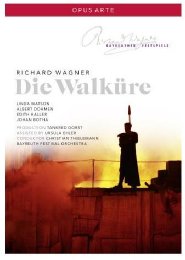
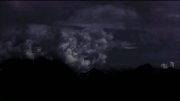
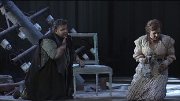
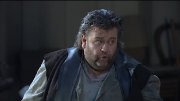

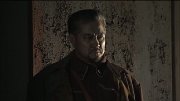
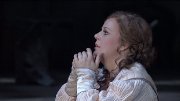
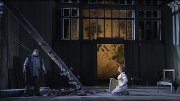
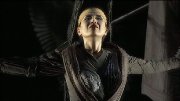
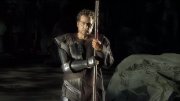
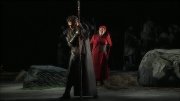
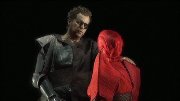
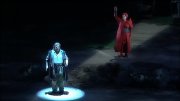
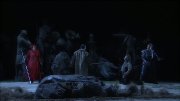

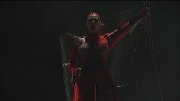
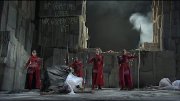
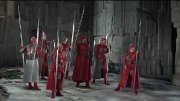
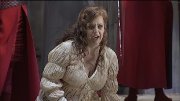
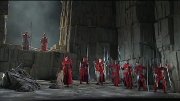
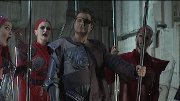
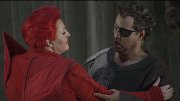
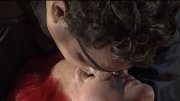
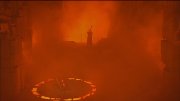







































Your Opinions and Comments
Be the first to post a comment!